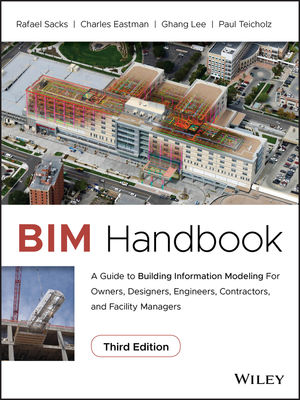Last month, I began a series of columns addressing the Building Commissioning Association’s (BCxA) elevenEssential Attributes of Building Commissioning. I believe the Essential Attributes need to be more widely understood and appreciated, not only by people providing commissioning services, but also by those procuring them. This month, I will cover Attributes #3 and #4.
ATTRIBUTE #3
In addition to having good written and verbal communication skills, the Commissioning Authority (CA) has current engineering knowledge and extensive recent hands-on field experience regarding:- Building systems commissioning,
- The
physical principles of building systems performance and
interaction,
- Building systems start-up,
balancing, testing, and troubleshooting,
- Operation and maintenance procedures, and
- The building design and construction process.
I strongly recommend face-to-face interviews of potential CA’s as the only way to assess the CA’s verbal communication skills and general demeanor/professionalism for serving as the owner’s technical representative. Each owner’s organization will have its own personality, priorities, and ways of interacting with others. It is important that the CA’s proposed team fits into that owner’s organization. This interpersonal “chemistry” is extremely important to have between the CA and the owner being represented.
In addition, speaking with building owners for whom the CA has provided commissioning services in the past is probably the best source of candid and meaningful information regarding the bulleted list of qualifications. The Attribute #3 experience bullet list can be used as a checklist of questions to ask previous client references.
The five bulleted items are all important to achieving the best value from the commissioning process. I believe they are equally important in the sense that if the CA is missing one, it will limit the success of commissioning, even if the CA is extremely strong in the other four areas. The most qualified commissioning providers will offer strength in all five areas.
ATTRIBUTE #4
For each project, the commissioning purpose and scope are clearly defined in the CA contract.Exactly what commissioning means continues to vary depending on who you ask. At one end of the spectrum, it may be considered a day of testing at the end of construction. At the other end, it may be seen as the comprehensive documentation of every piece of equipment, oversight of equipment start-up, coordination of equipment integration, overall system operational checkout, owner’s staff training, and responsibility for the transition period between construction and turnover to the owner.
One of the most common reasons for owners being dissatisfied with commissioning in general, and with their CAs in particular, is a disconnect between the owner’s expectations and the CA’s definition of commissioning. Therefore, for everyone’s well-being, this requirement is critical.
The process of coming to an understanding of commissioning scope and articulating it unambiguously in a contract is not trivial. It takes time, good communication skills (see Attribute #3), and an understanding that the early investment of time in this exercise will more than pay for itself in avoided disagreements later in the project.
For inexperienced facility owners, this means not blindly relying on industry standard scopes of services. It is very easy for people to simply reference standards or copy/paste them directly into contract documents without truly understanding what they mean. Many industry standards are necessarily generic and open to interpretation. Others offer a range of full-service commissioning activities that may or may not all be appropriate for a particular project.
Well-prepared owners will have educated themselves (through self-training and/or formal commissioning training programs) and will be able to pick and choose commissioning scope activities and deliverables that make the most sense for their project. In this case, the contract discussions can be focused on ensuring the CA understands and is prepared to agree to all of the services requested.
Without such a knowledgeable owner, the CA needs to take the lead in the contract scoping discussions. In this case, the CA should review with the owner all of the available options; explain the process and deliverables associated with each; and help the owner understand the costs and benefits of including each. If the owner is reticent to spend time discussing scope and continues to simply refer to a list of generic industry standard activities, the CA firm will need to decide how to cover itself against the increased risk of future owner dissatisfaction.
There is nothing special about being sure that both parties understand the terms of a business contract. In the case of commissioning, however, the industry and its terminology have not matured to the point where simply writing the words ensures that both sides understand them the same say. Take the time to talk and get to know each other’s expectations before signing on the bottom line.ES



